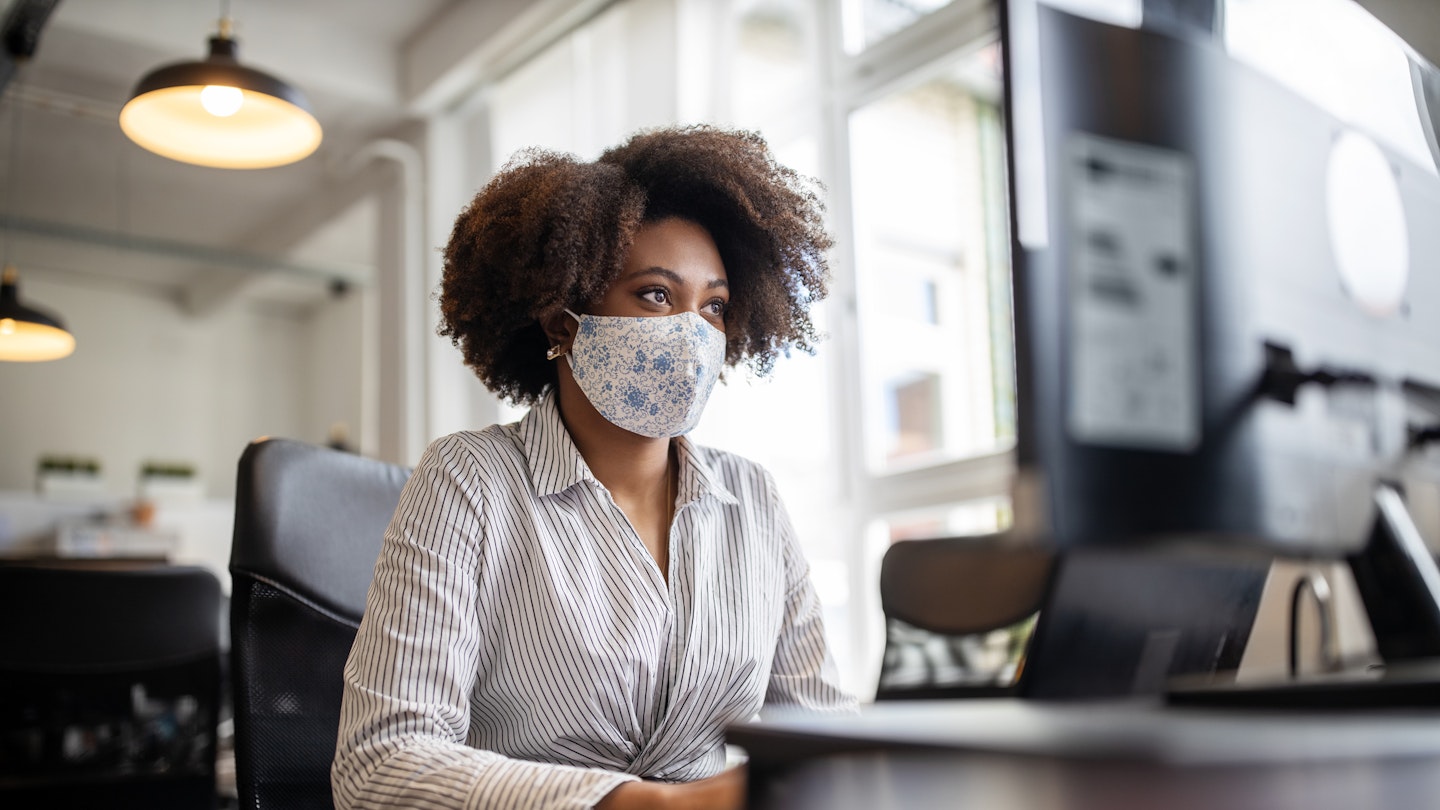As the covid vaccine roll-out continues around the country, slowly (sometimes it seems very slowly) some of us may be starting to wonder what the world looks like when lockdown ends. And for many of us, that will be wondering about when we'll go back to work after lockdown ends. Especially as we await the government's next announcement about lifting covid restrictions on February 22.
However, with older people and those with health issues being prioritised, many of us may be in a position where we're asked to go back to work before having the vaccine.
So, if Boris Johnson's announcement on ending lockdown on February 22 calls some people back into the office, what are you rights when it comes to work and the vaccine? Can your employer make you go into the office before you have the vaccine? Can an employer make you have the vaccine? Do you get time off to have the vaccine?
To answer all of our burning questions, we spoke to Emma Vennesson, Counsel at law firm Faegre Drinker.
Do I have to go back to work before I get the covid vaccine? Can my employer make me go to work before I've had the vaccine?
There is no legal requirement for you to have the vaccine before going to work. At the moment, we are currently in lockdown and the government has instructed that people only leave home to go to work if they cannot work from home. So, if you cannot work from home, you should go to work if your employer asks you to, whether or not you have had the vaccine. However, your employer must not ask you to go to work if this would put you at a high risk of contracting or developing complications of Covid-19. Your employer will also need to ensure that the workplace is Covid-safe.
Can my employer make me have the vaccine?
An employer can make it compulsory for staff to have the vaccine provided that this is reasonable in all the circumstances, in particular taking into account the type of workplace it operates. For example, while making vaccinations compulsory in the healthcare or social sectors is likely to be both necessary and reasonable, this is unlikely to be the case in other sectors, especially for office-based workers, where other protective measures such as home-working are effective.
If covid vaccinations cannot be made compulsory, what else can employers do?
Employers can provide staff with guidance about the vaccine and share the benefits of having it in order to encourage them to have it. Home-working is likely to continue for some time to come, but where that is not possible, employers should continue with other protective measures in the workplace, such as social distancing and the wearing of face coverings.
When can I go back to work if I’ve recovered from covid?
If you have symptoms of Covid-19, or have tested positive, or live with someone who has symptoms or who has tested positive, you must self-isolate for ten days. During this time, you must not go to work even if you cannot work from home. You must also notify your employer that you have to self-isolate no later than the next working day and your employer cannot require you to go into work. You will be able to go back to work once the ten day self-isolation period has ended, provided you no do not have any symptoms.
Can I have time off for the covid vaccine?
Your employer does not have to give you time off to have the vaccine. However, many employers are likely to recognise the importance of staff receiving the vaccine and may be prepared to give staff discretionary time off to have the vaccine. If your employer will not give you any time off to have the vaccine, you will need to use your holiday allowance instead.
Are there any discrimination risks around the covid vaccine?
Yes. Some people will not be able to have the vaccine due to certain characteristics (such as pregnancy or a disability) that are protected under UK discrimination law. So if an employer treats someone who has not been vaccinated because of a protected characteristic less favourably than other staff members who have been vaccinated, this could rise to a risk of discrimination. Less favourable treatment in this context could be things like excluding someone from the workplace, taking disciplinary action against them, or even dismissing them.
Emma Vennesson – Counsel, Charlotte Marshall – Associate
